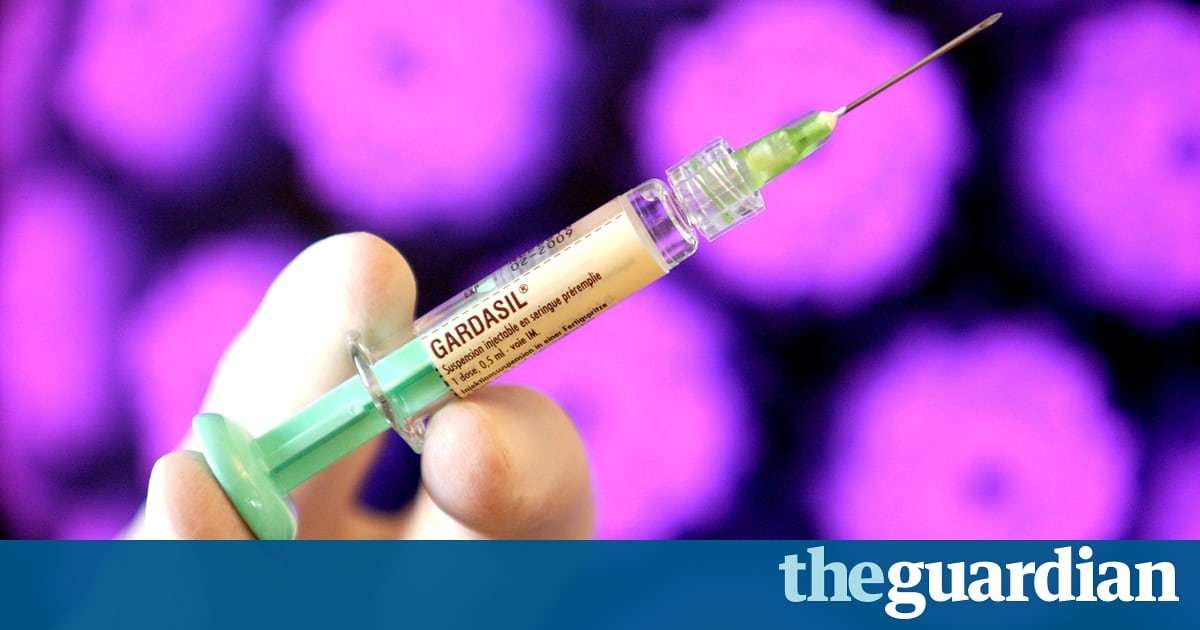Health officials have become increasingly alarmed at campaigns aimed at blocking the take-up of the human papilloma virus (HPV) vaccine, which protects women against cervical cancer.
Three leading nations have now seen major reductions in the take-up of the vaccine and a growing number of doctors fear its use could be blocked elsewhere, despite its capacity to provide protection against a condition that kills hundreds of thousands of women a year.
Last week, doctors and health officials gathered in Dublin – centre of one of the most vociferous anti-vaccine campaigns – to discuss future tactics. Many believe the use of social media has added new impetus to anti-vaccine campaigners’ protests, and that this factor has been closely involved in the success of the attacks that have been made on immunisation programmes.
“Whenever a new vaccine is introduced, there is always a group of people who say it is unsafe,” said Professor Margaret Stanley of Cambridge University. “But the HPV vaccine seems to raise extraordinary levels of hostility.”
Japan, Ireland and Denmark have already witnessed sustained campaigns that have seen take-up rates plummet. (UK take-up rates are high.) In each case, the vaccine – which scientists insist is safe – has been linked to alleged cases of seizures, walking problems, and neurological issues. Photographs have been exchanged and video clips uploaded to YouTube.
“The vaccine is given at the age of 13 when young people are highly emotional and react to events very strongly,” said Stanley. “In addition, some parents feel they might be encouraging promiscuity by allowing their daughters to be vaccinated against a virus that spreads through sexual contact. Add to this the use of social media and you have quite an explosive mixture.”
The controversy about the HPV vaccine was also raised last week when doctor Riko Muranaka – who has stood up to intimidation from anti-vaccine groups in Japan – was awarded the international John Maddox prize for promoting science in the public interest. In Japan, parents have posted videos of their children online, claiming symptoms of seizures and walking problems were caused by the HPV jab. Japan’s health ministry could find no evidence the vaccine was to blame, but take-up rates have plunged from more than 70% to less than 1%.
“With this vaccine we could prevent many deaths from cervical cancer in Japan, but we are not taking the opportunity,” Muranaka said.
Delegates in Dublin outlined one possible solution that has been adopted in Austria, where doctors now give the HPV vaccine to both girls and boys (who will gain protection against a form of throat cancer in later life). Crucially, the jab is also given at an earlier age: around nine. “The apparent link with alleged promiscuity is not perceived to be so strong at this age and the timing also comes when children tend to be less emotional,” said Stanley. “Giving the vaccine a few years earlier than at present could be very effective.”
Responding quickly to claims of links between outbreaks of ill-health and vaccination is also extremely important, said Heidi Larson, of the London School of Hygiene and Tropical Medicine. “England reached 87% full-dose coverage in 2014, having averted a potential public public confidence crisis in 2009 when a 14-year-old girl died after being vaccinated. Health officials expressed concern, promptly investigated the girl’s death and found it unrelated to the vaccine.”
For their part, scientists insist that the HPV vaccine is safe and effective. It protects against the two strains of the human papilloma virus that are most commonly linked to cervical cancer, and which account for more than 80% of cases. “Globally there are around 528,000 new cases of cervical cancer and 266,000 deaths linked to human papilloma virus a year,” said Larson. “The HPV vaccine has the potential to eradicate the vast majority of these.”
This point was emphasised by Prof Helen Bedford of University College London, who said that although the HPV vaccine had only been in use for around a decade, its benefit were already being observed: “Impressive data are already accumulating to show the impact of the vaccine in reducing HPV infections and pre-cancerous cervical lesions.”
In 20 years, that reduction should be mirrored in a corresponding drop in deaths from cervical cancer, added Stanley. “Given that cervical cancer often kills women who are relatively young – sometimes in their 20s or 30s – the benefits of this vaccine are particularly sharp.”

LillyGoLightly on December 4th, 2017 at 14:14 UTC »
I live in a very conservative (politically) area. I have a daughter who is 11 and is involved in activity that happens to attract a large number of very conservative (religiously) families.
Almost without fail, when the subject of this vax comes up, the women say they plan on getting their daughters vaccinated and not telling their husbands/ministers.
I'm not sure how my anecdote related to the world at large....but it gives me a tiny bit of hope for the next generation. While at the same time depressing me for so many other reasons than this vaccine.
FriendlyHoBag on December 4th, 2017 at 13:26 UTC »
This annoys me. I had to have a small part of my cervix removed due to pre cancerous cells caused by HPV at the age of 25. It wasn't a nice experience. Why would you not want to protect your child against potential cancer?
deedee25252 on December 4th, 2017 at 11:52 UTC »
The HPV vaccine can be used by either sex right? It will help an entire generation of people. Stop believing fear mongers and talk to the doctors and scientists.